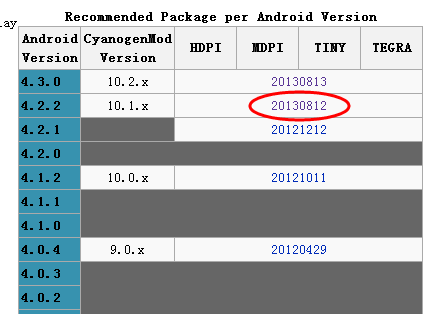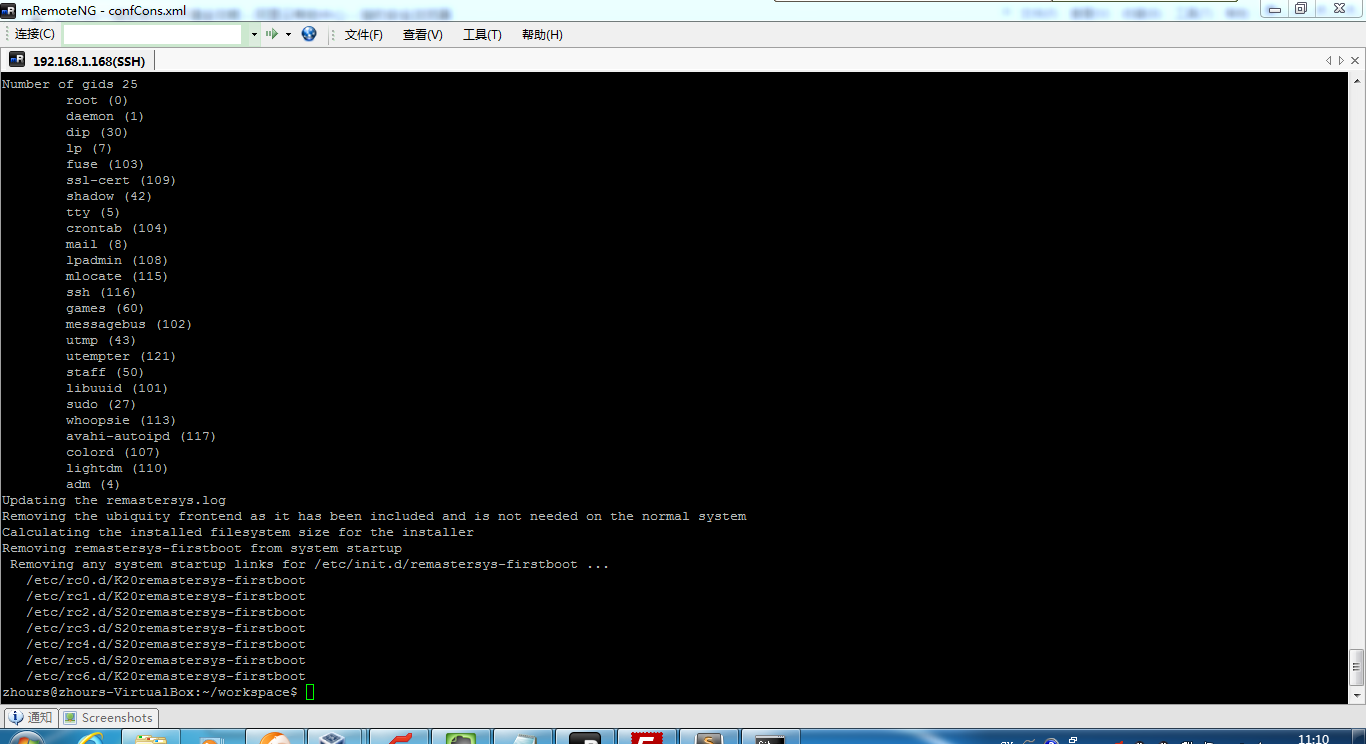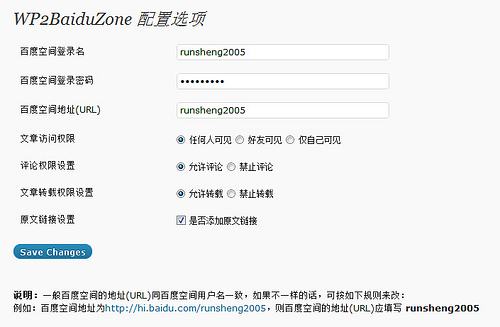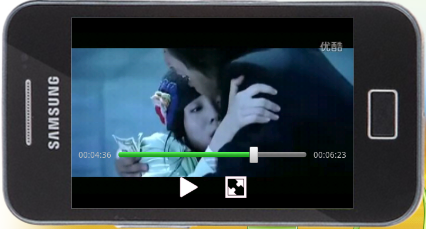代码对RPC的请求进行了封装,至于XML格式的生成请参照上一篇博文《XML-RPC 之 Android实现(上)》
package org.xmlrpc.android;
import java.io.File;
import java.io.FileWriter;
import java.io.PushbackInputStream;
import java.io.StringWriter;
import java.net.URI;
import java.net.URL;
import java.security.KeyManagementException;
import java.security.KeyStoreException;
import java.security.NoSuchAlgorithmException;
import java.security.UnrecoverableKeyException;
import java.util.Map;
import org.apache.http.HttpEntity;
import org.apache.http.HttpResponse;
import org.apache.http.HttpStatus;
import org.apache.http.auth.UsernamePasswordCredentials;
import org.apache.http.client.methods.HttpPost;
import org.apache.http.entity.FileEntity;
import org.apache.http.entity.StringEntity;
import org.apache.http.params.CoreConnectionPNames;
import org.apache.http.params.HttpParams;
import org.apache.http.params.HttpProtocolParams;
import org.wordpress.android.util.ConnectionClient;
import org.xmlpull.v1.XmlPullParser;
import org.xmlpull.v1.XmlPullParserFactory;
import org.xmlpull.v1.XmlSerializer;
import android.os.Environment;
import android.util.Log;
import android.util.Xml;
public class XMLRPCClient {
private static final String TAG_METHOD_CALL = "methodCall";
private static final String TAG_METHOD_NAME = "methodName";
private static final String TAG_METHOD_RESPONSE = "methodResponse";
private static final String TAG_PARAMS = "params";
private static final String TAG_PARAM = "param";
private static final String TAG_FAULT = "fault";
private static final String TAG_FAULT_CODE = "faultCode";
private static final String TAG_FAULT_STRING = "faultString";
private ConnectionClient client;
private HttpPost postMethod;
private XmlSerializer serializer;
private HttpParams httpParams;
/**
* XMLRPCClient constructor. Creates new instance based on server URI
*
* @param XMLRPC
* server URI
*/
public XMLRPCClient(URI uri, String httpuser, String httppasswd) {
postMethod = new HttpPost(uri);
postMethod.addHeader("Content-Type", "text/xml");
postMethod.addHeader("charset", "UTF-8");
// UPDATE THE VERSION NUMBER BEFORE RELEASE! <3 Dan
postMethod.addHeader("User-Agent", "wp-android/1.4.1");
httpParams = postMethod.getParams();
HttpProtocolParams.setUseExpectContinue(httpParams, false);
// username & password not needed
UsernamePasswordCredentials creds = new UsernamePasswordCredentials(
httpuser, httppasswd);
// this gets connections working over https
if (uri.getScheme() != null) {
if (uri.getScheme().equals("https")) {
if (uri.getPort() == -1)
try {
client = new ConnectionClient(creds, 443);
} catch (KeyManagementException e) {
client = new ConnectionClient(creds);
} catch (NoSuchAlgorithmException e) {
client = new ConnectionClient(creds);
} catch (KeyStoreException e) {
client = new ConnectionClient(creds);
} catch (UnrecoverableKeyException e) {
client = new ConnectionClient(creds);
}
else
try {
client = new ConnectionClient(creds, uri.getPort());
} catch (KeyManagementException e) {
client = new ConnectionClient(creds);
} catch (NoSuchAlgorithmException e) {
client = new ConnectionClient(creds);
} catch (KeyStoreException e) {
client = new ConnectionClient(creds);
} catch (UnrecoverableKeyException e) {
client = new ConnectionClient(creds);
}
} else {
client = new ConnectionClient(creds);
}
} else {
client = new ConnectionClient(creds);
}
serializer = Xml.newSerializer();
}
/**
* Convenience constructor. Creates new instance based on server String
* address
*
* @param XMLRPC
* server address
*/
public XMLRPCClient(String url, String httpuser, String httppasswd) {
this(URI.create(url), httpuser, httppasswd);
}
/**
* Convenience XMLRPCClient constructor. Creates new instance based on
* server URL
*
* @param XMLRPC
* server URL
*/
public XMLRPCClient(URL url, String httpuser, String httppasswd) {
this(URI.create(url.toExternalForm()), httpuser, httppasswd);
}
/**
* Call method with optional parameters. This is general method. If you want
* to call your method with 0-8 parameters, you can use more convenience
* call methods
*
* @param method
* name of method to call
* @param params
* parameters to pass to method (may be null if method has no
* parameters)
* @return deserialized method return value
* @throws XMLRPCException
*/
public Object call(String method, Object[] params) throws XMLRPCException {
return callXMLRPC(method, params);
}
/**
* Convenience method call with no parameters
*
* @param method
* name of method to call
* @return deserialized method return value
* @throws XMLRPCException
*/
public Object call(String method) throws XMLRPCException {
return callXMLRPC(method, null);
}
/**
* Convenience method call with one parameter
*
* @param method
* name of method to call
* @param p0
* method's parameter
* @return deserialized method return value
* @throws XMLRPCException
*/
public Object call(String method, Object p0) throws XMLRPCException {
Object[] params = { p0, };
return callXMLRPC(method, params);
}
/**
* Convenience method call with two parameters
*
* @param method
* name of method to call
* @param p0
* method's 1st parameter
* @param p1
* method's 2nd parameter
* @return deserialized method return value
* @throws XMLRPCException
*/
public Object call(String method, Object p0, Object p1)
throws XMLRPCException {
Object[] params = { p0, p1, };
return callXMLRPC(method, params);
}
/**
* Convenience method call with three parameters
*
* @param method
* name of method to call
* @param p0
* method's 1st parameter
* @param p1
* method's 2nd parameter
* @param p2
* method's 3rd parameter
* @return deserialized method return value
* @throws XMLRPCException
*/
public Object call(String method, Object p0, Object p1, Object p2)
throws XMLRPCException {
Object[] params = { p0, p1, p2, };
return callXMLRPC(method, params);
}
/**
* Convenience method call with four parameters
*
* @param method
* name of method to call
* @param p0
* method's 1st parameter
* @param p1
* method's 2nd parameter
* @param p2
* method's 3rd parameter
* @param p3
* method's 4th parameter
* @return deserialized method return value
* @throws XMLRPCException
*/
public Object call(String method, Object p0, Object p1, Object p2, Object p3)
throws XMLRPCException {
Object[] params = { p0, p1, p2, p3, };
return callXMLRPC(method, params);
}
/**
* Convenience method call with five parameters
*
* @param method
* name of method to call
* @param p0
* method's 1st parameter
* @param p1
* method's 2nd parameter
* @param p2
* method's 3rd parameter
* @param p3
* method's 4th parameter
* @param p4
* method's 5th parameter
* @return deserialized method return value
* @throws XMLRPCException
*/
public Object call(String method, Object p0, Object p1, Object p2,
Object p3, Object p4) throws XMLRPCException {
Object[] params = { p0, p1, p2, p3, p4, };
return callXMLRPC(method, params);
}
/**
* Convenience method call with six parameters
*
* @param method
* name of method to call
* @param p0
* method's 1st parameter
* @param p1
* method's 2nd parameter
* @param p2
* method's 3rd parameter
* @param p3
* method's 4th parameter
* @param p4
* method's 5th parameter
* @param p5
* method's 6th parameter
* @return deserialized method return value
* @throws XMLRPCException
*/
public Object call(String method, Object p0, Object p1, Object p2,
Object p3, Object p4, Object p5) throws XMLRPCException {
Object[] params = { p0, p1, p2, p3, p4, p5, };
return callXMLRPC(method, params);
}
/**
* Convenience method call with seven parameters
*
* @param method
* name of method to call
* @param p0
* method's 1st parameter
* @param p1
* method's 2nd parameter
* @param p2
* method's 3rd parameter
* @param p3
* method's 4th parameter
* @param p4
* method's 5th parameter
* @param p5
* method's 6th parameter
* @param p6
* method's 7th parameter
* @return deserialized method return value
* @throws XMLRPCException
*/
public Object call(String method, Object p0, Object p1, Object p2,
Object p3, Object p4, Object p5, Object p6) throws XMLRPCException {
Object[] params = { p0, p1, p2, p3, p4, p5, p6, };
return callXMLRPC(method, params);
}
/**
* Convenience method call with eight parameters
*
* @param method
* name of method to call
* @param p0
* method's 1st parameter
* @param p1
* method's 2nd parameter
* @param p2
* method's 3rd parameter
* @param p3
* method's 4th parameter
* @param p4
* method's 5th parameter
* @param p5
* method's 6th parameter
* @param p6
* method's 7th parameter
* @param p7
* method's 8th parameter
* @return deserialized method return value
* @throws XMLRPCException
*/
public Object call(String method, Object p0, Object p1, Object p2,
Object p3, Object p4, Object p5, Object p6, Object p7)
throws XMLRPCException {
Object[] params = { p0, p1, p2, p3, p4, p5, p6, p7, };
return callXMLRPC(method, params);
}
/**
* Call method with optional parameters
*
* @param method
* name of method to call
* @param params
* parameters to pass to method (may be null if method has no
* parameters)
* @return deserialized method return value
* @throws XMLRPCException
*/
@SuppressWarnings("unchecked")
private Object callXMLRPC(String method, Object[] params)
throws XMLRPCException {
try {
// prepare POST body
File tempFile = null;
if (method.equals("wp.uploadFile")) {
String tempFilePath = Environment.getExternalStorageDirectory()
+ File.separator + "wordpress" + File.separator + "wp-"
+ System.currentTimeMillis() + ".xml";
File directory = new File(tempFilePath).getParentFile();
if (!directory.exists() && !directory.mkdirs()) {
throw new XMLRPCException(
"Path to file could not be created.");
}
tempFile = new File(tempFilePath);
FileWriter fileWriter = new FileWriter(tempFile);
serializer.setOutput(fileWriter);
serializer.startDocument(null, null);
serializer.startTag(null, TAG_METHOD_CALL);
// set method name
serializer.startTag(null, TAG_METHOD_NAME).text(method)
.endTag(null, TAG_METHOD_NAME);
if (params != null && params.length != 0) {
// set method params
serializer.startTag(null, TAG_PARAMS);
for (int i = 0; i < params.length; i++) {
serializer.startTag(null, TAG_PARAM).startTag(null,
XMLRPCSerializer.TAG_VALUE);
XMLRPCSerializer
.serialize(serializer, params[i], false);
serializer.endTag(null, XMLRPCSerializer.TAG_VALUE)
.endTag(null, TAG_PARAM);
}
serializer.endTag(null, TAG_PARAMS);
}
serializer.endTag(null, TAG_METHOD_CALL);
serializer.endDocument();
fileWriter.flush();
fileWriter.close();
FileEntity fEntity = new FileEntity(tempFile,
"text/xml; charset="UTF-8"");
fEntity.setContentType("text/xml");
// fEntity.setChunked(true);
postMethod.setEntity(fEntity);
} else {
StringWriter bodyWriter = new StringWriter();
serializer.setOutput(bodyWriter);
serializer.startDocument(null, null);
serializer.startTag(null, TAG_METHOD_CALL);
// set method name
serializer.startTag(null, TAG_METHOD_NAME).text(method)
.endTag(null, TAG_METHOD_NAME);
if (params != null && params.length != 0) {
// set method params
serializer.startTag(null, TAG_PARAMS);
for (int i = 0; i < params.length; i++) {
serializer.startTag(null, TAG_PARAM).startTag(null,
XMLRPCSerializer.TAG_VALUE);
if (method.equals("metaWeblog.editPost")
|| method.equals("metaWeblog.newPost")) {
XMLRPCSerializer.serialize(serializer, params[i],
true);
} else {
XMLRPCSerializer.serialize(serializer, params[i],
false);
}
serializer.endTag(null, XMLRPCSerializer.TAG_VALUE)
.endTag(null, TAG_PARAM);
}
serializer.endTag(null, TAG_PARAMS);
}
serializer.endTag(null, TAG_METHOD_CALL);
serializer.endDocument();
HttpEntity entity = new StringEntity(bodyWriter.toString());
// Log.i("WordPress", bodyWriter.toString());
postMethod.setEntity(entity);
}
// set timeout to 40 seconds, does it need to be set for both client
// and method?
client.getParams().setParameter(
CoreConnectionPNames.CONNECTION_TIMEOUT, 40000);
client.getParams().setParameter(CoreConnectionPNames.SO_TIMEOUT,
40000);
postMethod.getParams().setParameter(
CoreConnectionPNames.CONNECTION_TIMEOUT, 40000);
postMethod.getParams().setParameter(
CoreConnectionPNames.SO_TIMEOUT, 40000);
// execute HTTP POST request
HttpResponse response = client.execute(postMethod);
Log.i("WordPress", "response = " + response.getStatusLine());
// check status code
int statusCode = response.getStatusLine().getStatusCode();
if ((method.equals("wp.uploadFile"))) { // get rid of the temp file
tempFile.delete();
}
if (statusCode != HttpStatus.SC_OK) {
throw new XMLRPCException("HTTP status code: " + statusCode
+ " was returned. "
+ response.getStatusLine().getReasonPhrase());
}
// setup pull parser
XmlPullParser pullParser = XmlPullParserFactory.newInstance()
.newPullParser();
HttpEntity entity = response.getEntity();
// change to pushbackinput stream 1/18/2010 to handle self installed
// wp sites that insert the BOM
PushbackInputStream is = new PushbackInputStream(
entity.getContent());
// get rid of junk characters before xml response. 60 = '<'. Added
// stopper to prevent infinite loop
int bomCheck = is.read();
int stopper = 0;
while (bomCheck != 60 && stopper < 20) {
bomCheck = is.read();
stopper++;
}
is.unread(bomCheck);
pullParser.setInput(is, "UTF-8");
// lets start pulling...
pullParser.nextTag();
pullParser.require(XmlPullParser.START_TAG, null,
TAG_METHOD_RESPONSE);
pullParser.nextTag(); // either TAG_PARAMS (<params>) or TAG_FAULT
// (<fault>)
String tag = pullParser.getName();
if (tag.equals(TAG_PARAMS)) {
// normal response
pullParser.nextTag(); // TAG_PARAM (<param>)
pullParser.require(XmlPullParser.START_TAG, null, TAG_PARAM);
pullParser.nextTag(); // TAG_VALUE (<value>)
// no parser.require() here since its called in
// XMLRPCSerializer.deserialize() below
// deserialize result
Object obj = XMLRPCSerializer.deserialize(pullParser);
entity.consumeContent();
return obj;
} else if (tag.equals(TAG_FAULT)) {
// fault response
pullParser.nextTag(); // TAG_VALUE (<value>)
// no parser.require() here since its called in
// XMLRPCSerializer.deserialize() below
// deserialize fault result
Map<String, Object> map = (Map<String, Object>) XMLRPCSerializer
.deserialize(pullParser);
String faultString = (String) map.get(TAG_FAULT_STRING);
int faultCode = (Integer) map.get(TAG_FAULT_CODE);
entity.consumeContent();
throw new XMLRPCFault(faultString, faultCode);
} else {
entity.consumeContent();
throw new XMLRPCException("Bad tag <" + tag
+ "> in XMLRPC response - neither <params> nor <fault>");
}
} catch (XMLRPCException e) {
// catch & propagate XMLRPCException/XMLRPCFault
throw e;
} catch (Exception e) {
// wrap any other Exception(s) around XMLRPCException
throw new XMLRPCException(e);
}
}
}
其他工具类的实现,比如错误,异常的实现类和Base64的编码和解码请参照:android_rpc








